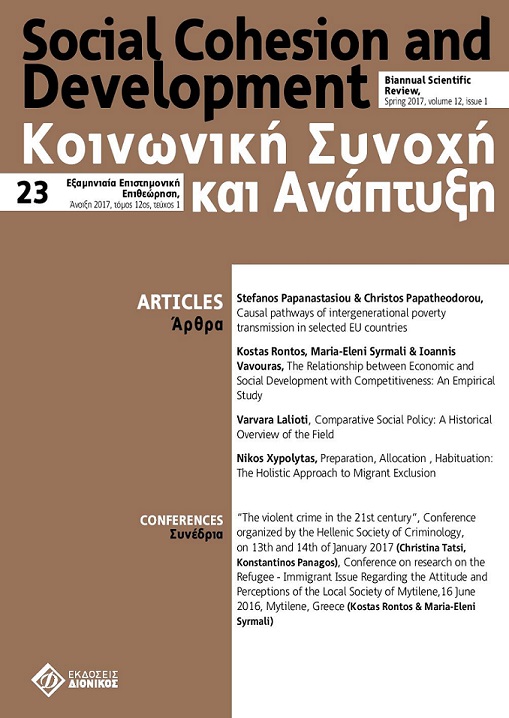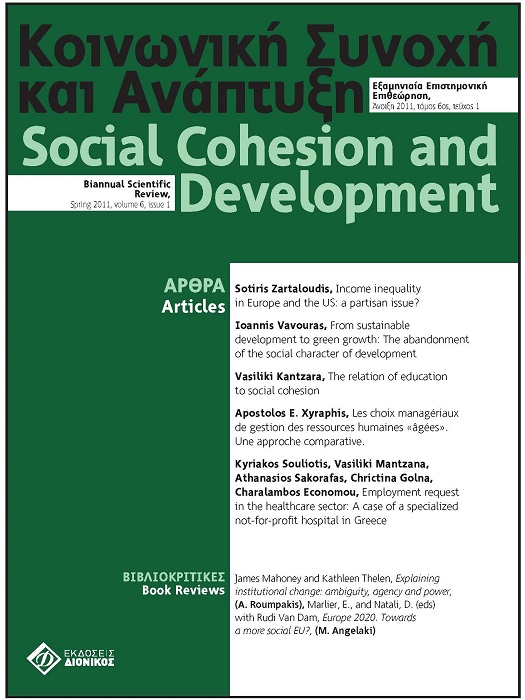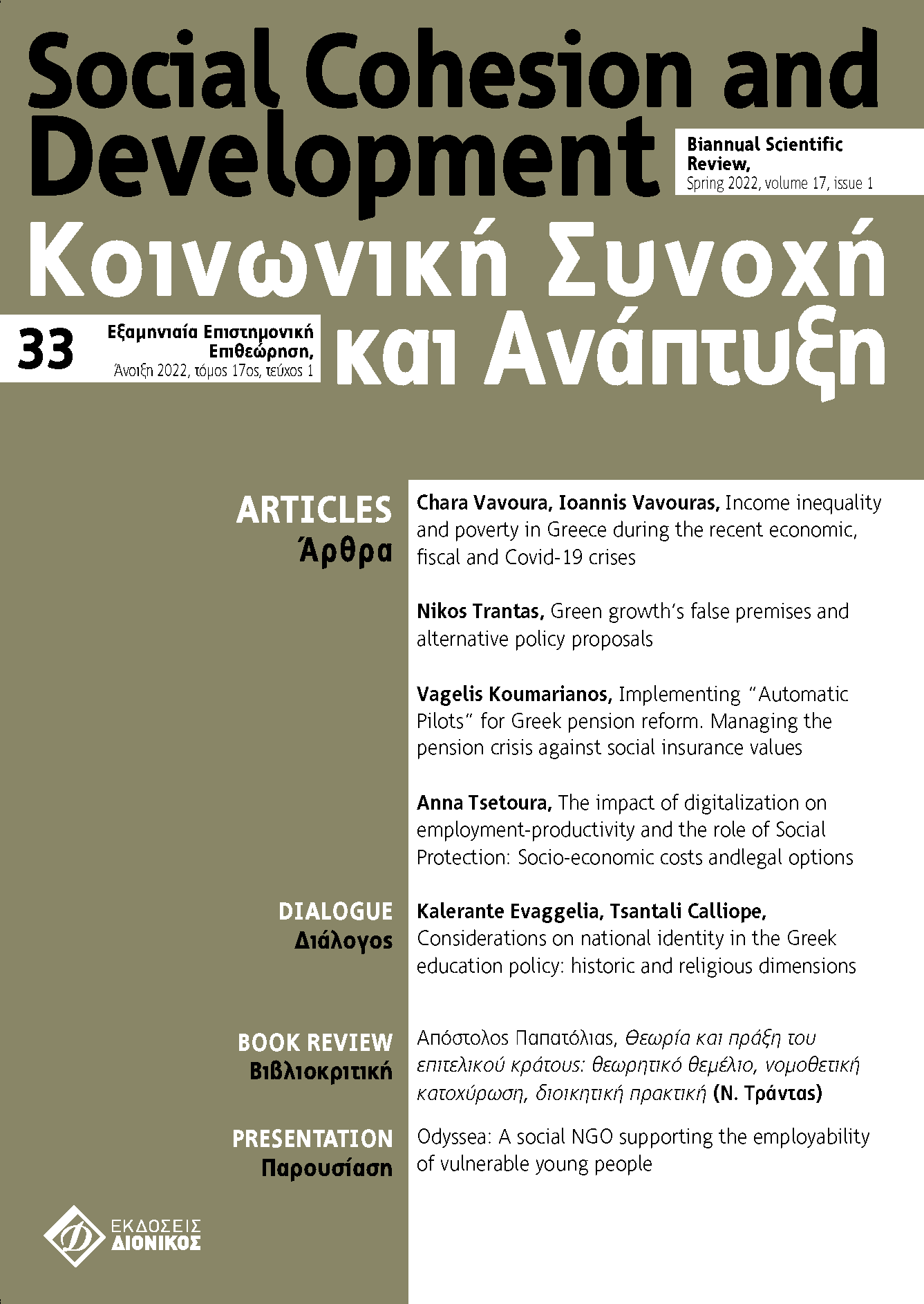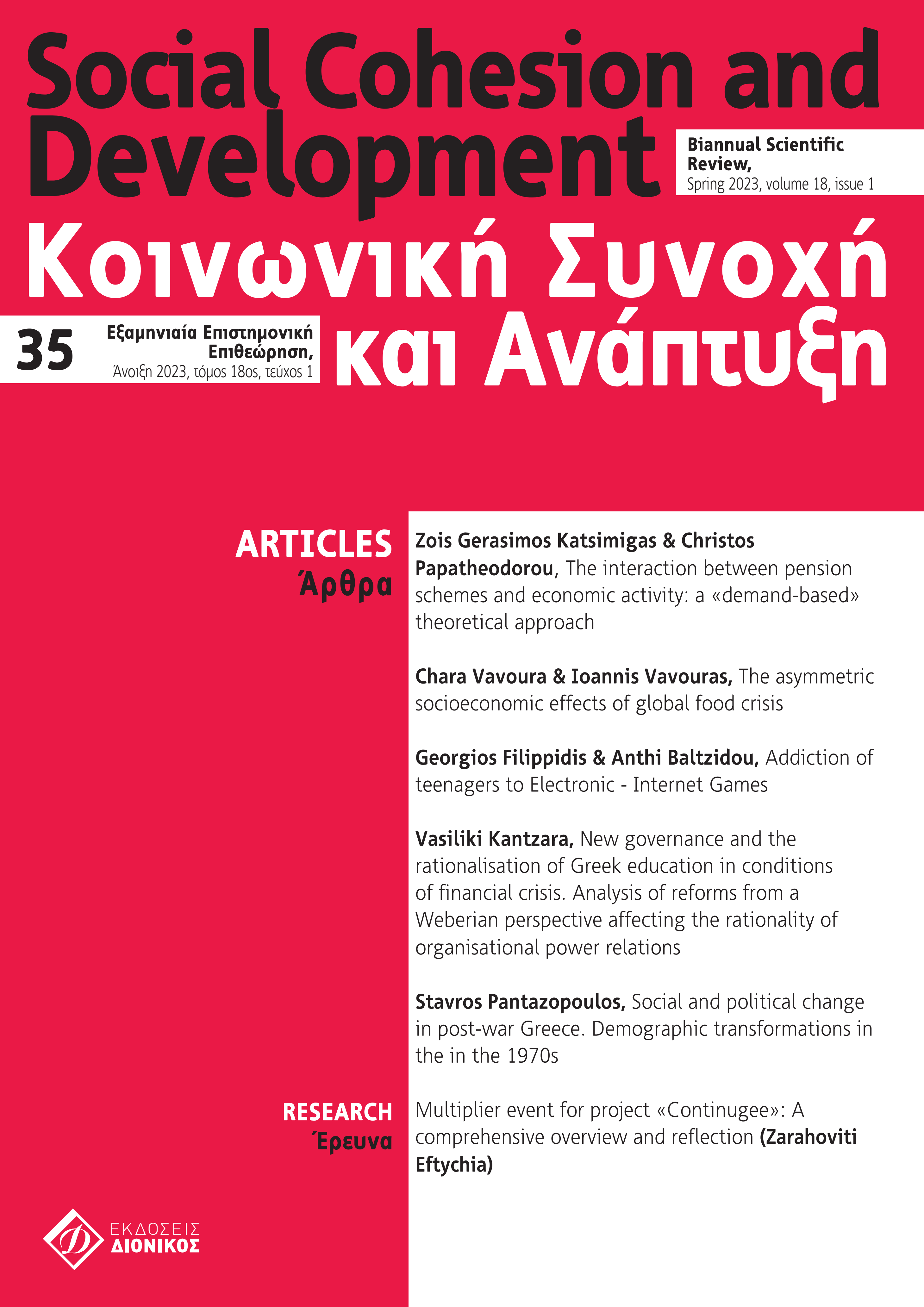Η αντιμετώπιση της κρίσης χρέους στην Ελλάδα: Ο ρόλος της παραοικονομίας
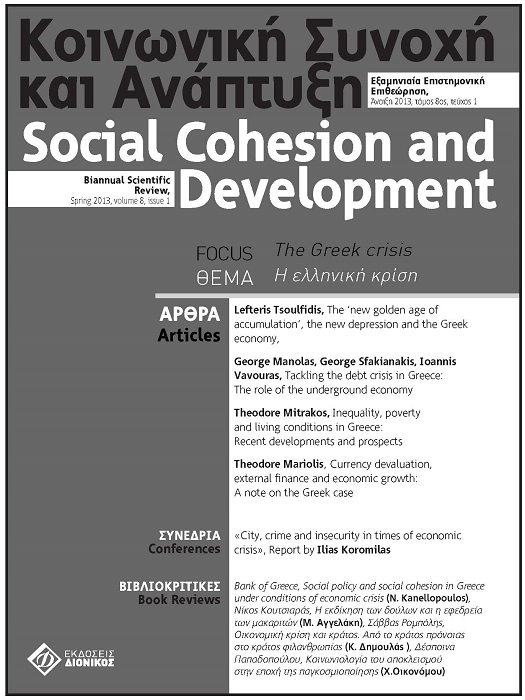
Περίληψη
Σκοπός της παρούσας εργασίας είναι η εκτίμη-
ση της σχετικής σημασίας της παραοικονομίας
στην προσπάθεια αντιμετώπισης της σημερινής
κρίσης χρέους. Εξετάζοντας την περίπτωση της
Ελλάδας, μια από τις χώρες της ΕΕ που αντιμε-
τωπίζουν σοβαρό πρόβλημα δημόσιου χρέους,
δίνουμε ιδιαίτερη έμφαση στην αντιμετώπιση
της παραοικονομίας, δηλαδή στην ενσωμάτω-
σή της στο επίσημο ΑΕΠ. Επιπλέον, αναλύοντας
τους παράγοντες που επηρεάζουν το τμήμα της
οικονομικής δραστηριότητας το οποίο λαμβάνει
χώρα εκτός του επίσημου τομέα της οικονο-
μίας, παρέχουμε μια εκτίμηση του δυνητικού
οφέλους που θα είχε η Ελλάδα από τον έλεγχο
της παραοικονομίας στην περίπτωση που είχε
τις καλύτερες επιδόσεις σε σχέση με τις χώρες-
μέλη του ΟΟΣΑ ή ακόμη και στην περίπτωση
που είχε τις μέσες αντίστοιχες επιδόσεις.
Λεπτομέρειες άρθρου
- Πώς να δημιουργήσετε Αναφορές
-
Manolas, G., Sfakianakis, G., & Vavouras, I. (2016). Η αντιμετώπιση της κρίσης χρέους στην Ελλάδα: Ο ρόλος της παραοικονομίας. Κοινωνική Συνοχή και Ανάπτυξη, 8(1), 25–35. https://doi.org/10.12681/scad.9085
- Ενότητα
- Άρθρα

Αυτή η εργασία είναι αδειοδοτημένη υπό το CC Αναφορά Δημιουργού – Μη Εμπορική Χρήση – Παρόμοια Διανομή 4.0.
Οι συγγραφείς των άρθρων που δημοσιεύονται στην Κοινωνική Συνοχή και Ανάπτυξη διατηρούν τα δικαιώματα πνευματικής ιδιοκτησίας επί των άρθρων τους, δίνοντας στο περιοδικό το δικαίωμα της πρώτης δημοσίευσης. Άρθρα που δημοσιεύονται στην Κοινωνική Συνοχή διατίθενται με άδεια Creative Commons 4.0 και σύμφωνα με την άδεια μπορούν να χρησιμοποιούνται ελεύθερα, με αναφορά στο/στη συγγραφέα και στην πρώτη δημοσίευση για μη κερδοσκοπικούς σκοπούς και με δικαίωμα τροποποίησης μόνον με παρόμοια διανομή (αν αναμείξετε, τροποποιήσετε, ή δημιουργήσετε πάνω στο υλικό, πρέπει να διανείμετε τις δικές σας συνεισφορές υπό την ίδια άδεια όπως και το πρωτότυπο).


